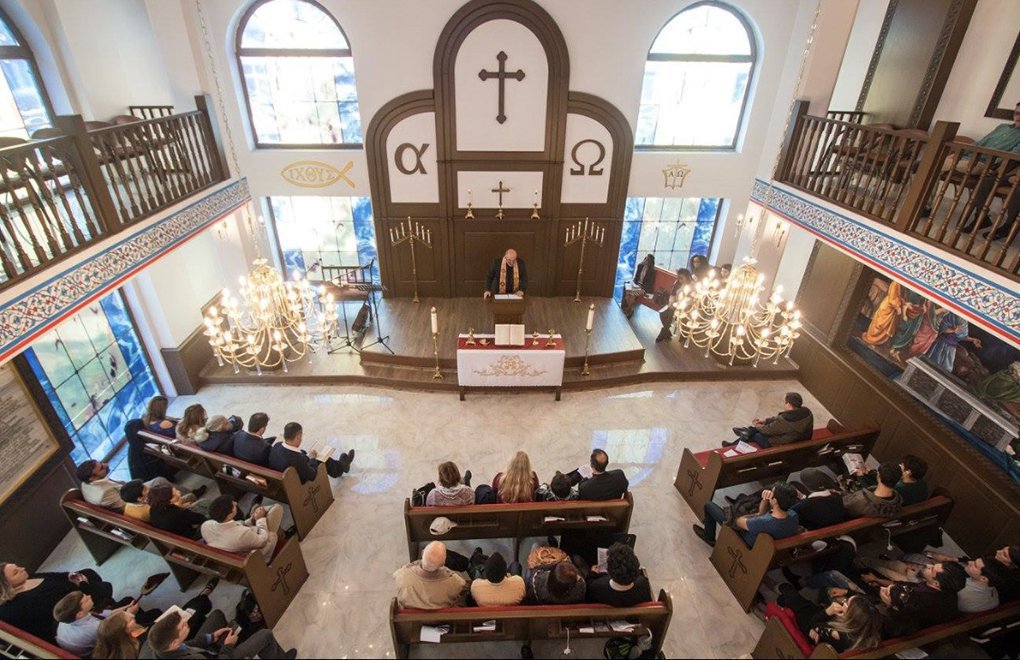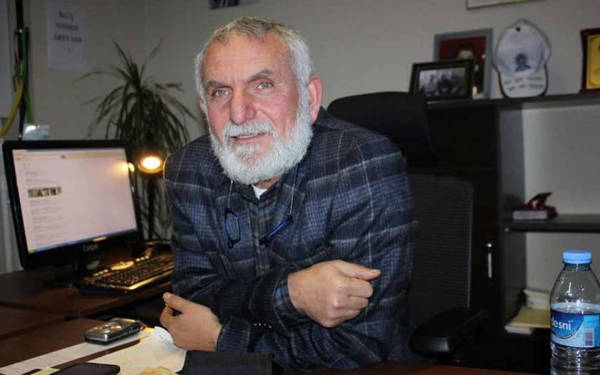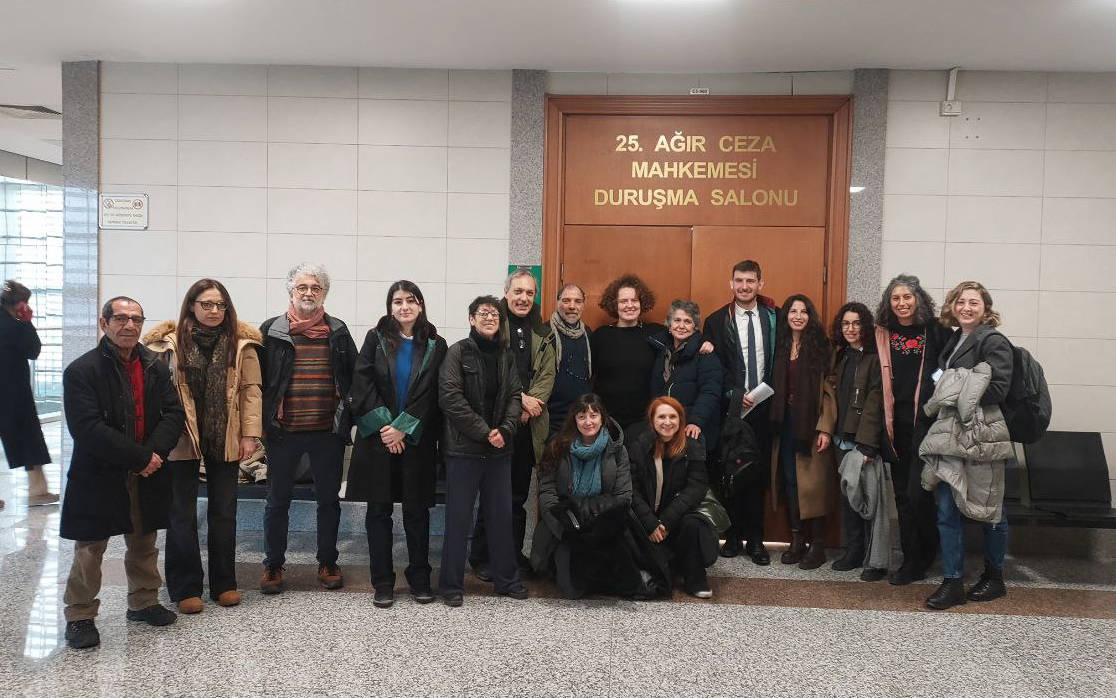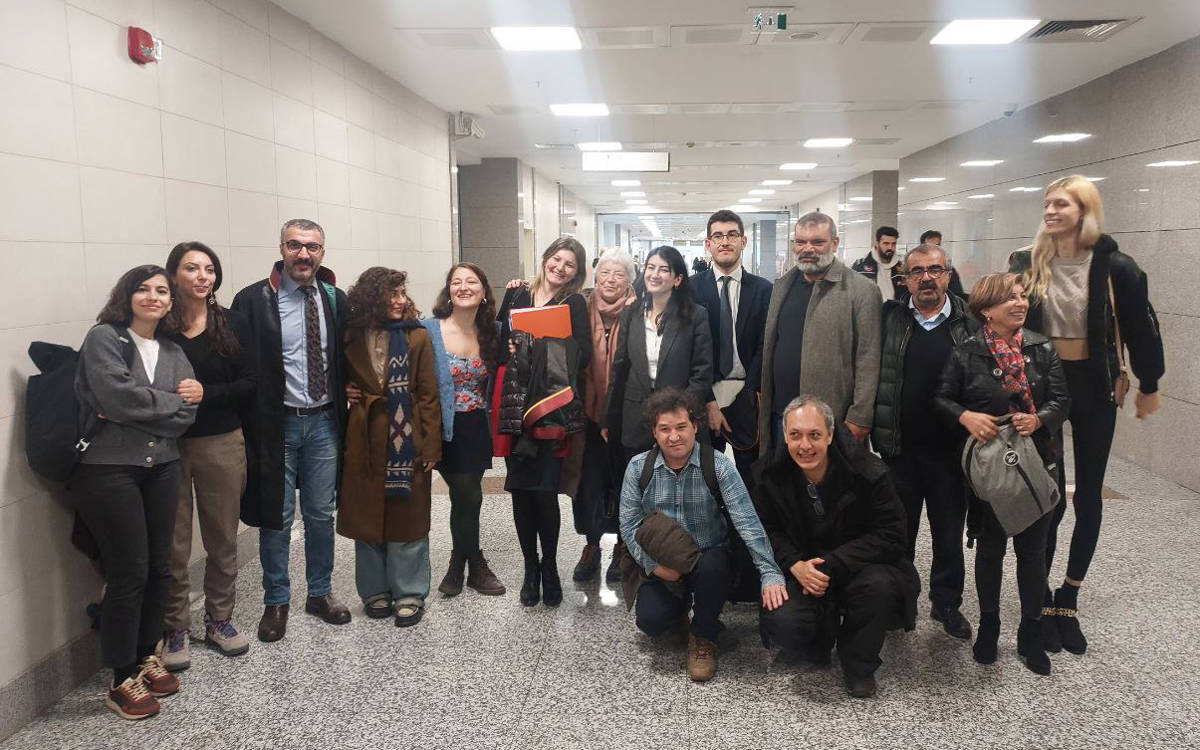* Photo: hristiyanhaber.net
Click to read the article in Turkish
"Since 2019, pastors have been facing difficulties in entering and leaving Turkey. After the coronavirus outbreak, the hindrances have started again where they left off. The spouse of a friend of ours in Ankara applied for residence permit, it has been rejected. They now ask a preliminary entry permit from our dignitaries who have been living in Turkey for 19 years."
It is how İstanbul Protestant Church Foundation Chair Timur Topuz summarizes the hindrances faced by Protestant community in Turkey.
There are almost 170 Protestant churches and communities in the country, primarily in İstanbul, Ankara and İzmir.
Topuz says that the laws in Turkey 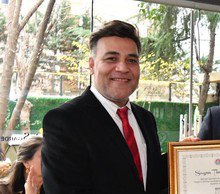 do not permit raising Christian clergy in the country and adds, "Laws do not allow opening schools that will give religious education with the aim of raising their members. Protestant community tries to solve this problem by following a master-apprentice method, sending students abroad, bringing pastors from abroad or receiving pastoral support from foreign national clergy."
do not permit raising Christian clergy in the country and adds, "Laws do not allow opening schools that will give religious education with the aim of raising their members. Protestant community tries to solve this problem by following a master-apprentice method, sending students abroad, bringing pastors from abroad or receiving pastoral support from foreign national clergy."
'Hindrances have started again after the outbreak'
Topuz says that since 2019, foreign pastors and members of the Protestant community have been facing a series of problems such as deportation, denial of entry to Turkey or a failure to give residence permit or visa:
"In 2019, 35 Protestants were prevented from entering Turkey. The hindrances have started again in the aftermath of coronavirus outbreak.
"We have learnt that a pastor of ours with a work permit in Turkey for 19 years was given a code while he was about to leave Turkey. He was told that if he left Turkey, he would not be able to enter the country again. Our dignitary did not go abroad because of this.
"Similarly, the foreign national spouse of a deputy pastor who works in our Ankara representative, is a citizen of Turkey and a father of three applied for residence permit. We learn that this application was rejected. In both incidents, the excuse of a 'threat to public security' was cited as the reason.
"We cannot not understand why our pastor who has been living and had a work permit in Turkey since 2001 was given such a code. There is no sense in giving him this code. No one knows why they gave it, to be honest. No one makes us a proper explanation about that.
'We hope that it was a mistake and will be corrected'
"We are faced with a systematic pressure targeting Protestant churches. Because there is no qualified Turkish pastor. We do not have the opportunity to raise pastors in Turkey anyway. We are trying to serve our community through the ones who come from abroad. But now, by requiring the pastors of several churches to have a preliminary entry permit, we see that there is an attempt to deprive the churches of pastors.
"We have full faith that the legal system of Turkey is adept and adequate to ensure that justice will be served. While we are holding the hope that it was a mistake and this mistake will be corrected, we also want to express the deep sorrow this issue has caused in us.
"Our foundation acts in accordance with all legal regulations, primarily the Constitution of Turkey, and it only engages in activities to make sure that religious needs are met, as foreseen by its founding purpose."
35 pastors not allowed entry to Turkey in 2019
According to a report prepared by the Protestant Churches Association, the entry of at least 35 pastors to Turkey was prevented last year.
While 17 of these pastors were from the US, 6 were the citizens of the UK, 3 were from Germany, 3 from South Korea, 2 from Iran and 1 from Spain, Finland, Mexico and Brazil each. Taken together with their family members, this number exceeded 100, the report underlined further.
The report also indicated that these persons were given an N82 code, suggesting that their entry to Turkey requires a preliminary permit.
"In defending itself at court, the authority that gave the code said that the N82 code did not mean a ban on entering the country, but it was solely a preliminary permit," the report said and added:
"However, in practice, the applications of all people who were subjected to this situation and applied for visa were rejected. While N82 is legally not a prohibition of entry to the country, it is implemented as such." (HA/SD)





